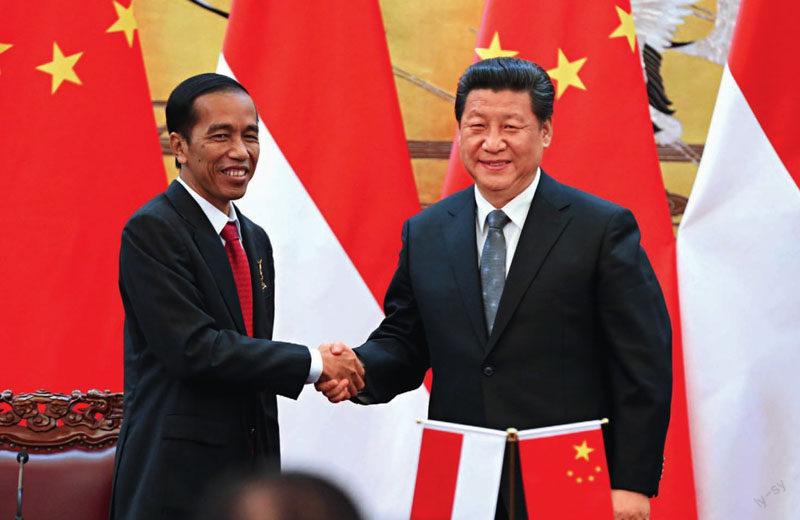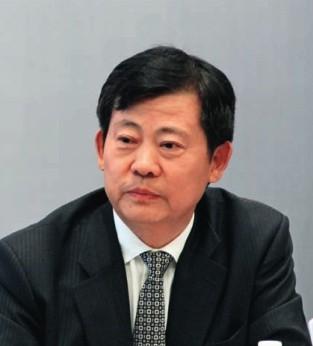China Minsheng Investment:Build an Industrial Park in Indonesia
By staff reporter ZHOU LIN
INDONESIAN President Joko Widodo told the media during his state visit to China last March 26-28 that there are now new collaborative investment and trade opportunities for China and Indonesia, and that he hoped China would step up its investment in his countrys infrastructure. This year the Indonesian government is to invest IDR 290 trillion (US $22.3 billion) in infrastructure exploration – the highest amount of any in its history.
China Minsheng Investment Corp., Ltd. (CMI) and its partner Indonesia China Business Council signed on March 27 the cooperative agreement in Beijings Great Hall of the People whereby scores of domestic competitive private enterprises will jointly invest US $5 billion in building the CMI Indonesian
Industrial Park. The funding scale will surpass US $10 billion in the short term. The project was among a package of cooperative agreements between the two countries with a total investment of more than US $40 billion.
Huge Potentially Complementary Advantages
Indonesian President Joko Widodo released in December 2014 the mediumterm reform agenda and economic development plan from 2015 to 2019 whose main focus is future major infrastructure construction projects in 12 fields. Mr Widodo expressed admiration during his visit to China for the fruitful technological experience of Chinese companies and their rapid construction of infrastructure, saying that Indonesia hopes the Chinese government will support it and invest substantially in the construction of its highways, railways, electric power, and harbors.
“If two nations can conduct cooperation in these fields, development in Indonesia should pose no problem,” Mr Widodo said.
Meanwhile, Indonesia is also a founding member of the Asian Infrastructure Investment Bank (AIIB). Mr Widodo commented that many nations experience funding problems, and that international financial organizations including the World Bank, the Asian Development Bank, and the International Monetary Fund can scarcely meet Indonesias IDR 3,000 trillion (US $230.5 billion) need for infrastructure capital. “The establishment and operation of the AIIB is sure to push forward the world economy dramatically,” Mr Widodo said.
Coupled with the proactive attitude of the Indonesian government, the Chinese government cherishes this promising business opportunity and development potential. Indonesia is the second largest investment destination in the Association of Southeast Asian Nations(ASEAN). In the decade from 2004 to 2014, Chinas investment in Indonesia increased from US $61.96 million to US$1.109 billion – a dramatic growth of 1,690 percent – 17.9 times that of a decade ago.
Premier Li Keqiang said that the Chinese government should encourage more competitive and qualified domestic enterprises to invest in Indonesia and take part in the construction of highspeed rails, light railways, and portcentered industrial parks. We should not only share our technology and experience with the people of Indonesia, but also ensure the speed and quality of such projects.
In fact, Chinese enterprises with mature technology and equipment and high construction competency hold a superior position in the Indonesian potential infrastructure market, displaying lower cost and higher speed than European, American and Japanese enterprises. Whats more, Chinese investment objectives nowadays are more diversified, showing a year-on-year drop in stateowned enterprise participation and growingly competitive private compa- nies that have adopted various investment strategies to accelerate the funding process.
Best Infrastructure Construction Partner
Why choose Indonesia among all ASEAN countries as the first location of an industrial park? CMI CEO Li Huaizhen explained: First, Indonesia has a population of 250 million; second, the maritime power has a strategic location; and third, China and Indonesia have a sound relationship and complementary industries.
Li Huaizhen, formerly director of the China Banking Regulatory Commission Accounting Department and vice president of the CMSB Supervisory Board, has a clear vision of the development scheme of the upcoming Indonesian industrial park. “We attach great importance to Indonesian industry. Our two countries are now at different stages of development and share complementary industries. The new Indonesian president announced soon after taking office that the nations future strategy was focused on becoming a maritime power and accelerating industrialization. China has already stepped into the middle and late period of industrialization, maintaining a powerful industrial advantage which can definitely meet the demand of Indonesias current market.”
In addition to a strong desire for reform and development, the Indonesian industrial structure and distribution plans are also transparent and acceptable. In the coming five years, Indonesia will build more ports and other infrastructure facilities, and exploit numerous mineral resources. Chinese enterprises, especially private companies, can provide support that will eventuate in a win-win situation.
While talking about the development advantages and the resources that CMI could bring to Indonesia, Li Huaizhen said that the “going global” of scores of domestic private companies would bring to Indonesia multiple programs that the government would warmly welcome, including steel, cement, ports and industrial parks. All these projects will soon materialize.
Jointly Build Indonesian Industrial Park
Zhou Feng, Chinese ambassador to the Republic of Indonesia, spoke highly of the CMI Indonesian Industrial Park, hoping that it would become the landmark of Chinas investment in Indonesia.
“Having taken the investment scale into consideration, CMI has collaborated with Chinese private companies. The idea of an industrial park originates in the Korean and Japanese experience. CMI shoulders the responsibility of helping private enterprises open up the global market with three factors in mind: the scale effect, the formation of an industrial chain, and the functional development of the industrial park,” Li Huaizhen said. Currently, US $5 billion has been assigned to four programs–steel, cement, nickel mining, and a port.
“The steel project will be the most rapid, entailing an investment of US $1.6 billion to complete over two phases, with an annual production of three million tons in each phase. In fact, six million tons of steel annually would be close to the current total steel production in Indonesia,” Li Huaizhen said.
CMI is a combination of 59 private enterprise stakeholders, according to Li Huaizhen. Before the establishment of the Indonesian Industrial Park, all stakeholders signed agreements authorizing CMI to negotiate with Indonesia. CMI has also had other cooperative partners. For example, it collaborated with a native private enterprise that had carried out a four-year investigation of the Indonesian market and formed a relatively mature investment plan.
To strengthen the competency of steel production and port construction, CMI has considered the initiative proposed by President Xi Jinping on the joint con- struction of the “21st Century Maritime Silk Road” and President Joko Widodos aim “to develop maritime economy and rebuild Indonesia into maritime power.”
The Indonesian English-language daily newspaper The Jakarta Post recently reported that the Indonesian government paid great attention to infrastructure construction based on a maritime approach. As a main support of maritime transportation and connectivity, the shipbuilding industry will become the Indonesian governments main field of development.
Executive Chairman Xu Ningning of China-ASEAN Business Council (CABC) has a broad span of communication with Indonesian Trade Ministry and Foreign Affairs Ministry dignitaries. He concludes that Indonesia is hampered by a weak steel industry and an absence of completed accessories and raw materials. Consequently its shipbuilding industry runs at extremely high cost. Chinas shipbuilding industry, on the other hand, has a world renowned reputation whose competitive power comprehensively integrates into the Indonesian market.
In the future, CMI will continue to combine its development goals with the major challenges to the economic and industrial development that the Indonesian government is striving to push forward. It will bring in such projects as coal chemical industry, electrolytic aluminum, steel, electric power generation, cement, infrastructure construction, harbors, ocean-going fishing, the Internet, corporate airplane trusteeship, and helicopter production and operations.
“Most areas in Indonesia have access to the Internet, but its broadband network is smaller and slower. The aim of the government in the 2015-2019 plan is to build a perfect network for cities, counties, and districts. Indonesia now has 260 million mobile terminals. It is predicted that 3G users will increase 45 percent in 2015,” Li Huaizhen said, adding that he believes there is a huge market demand and great potential for Chinese enterprises to create opportunities. Joining hands to reach win-win result is the common pursuit of both China and Indonesia.

